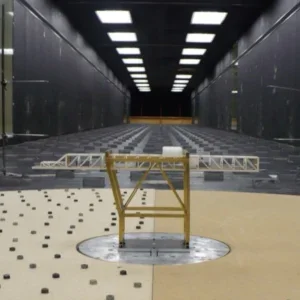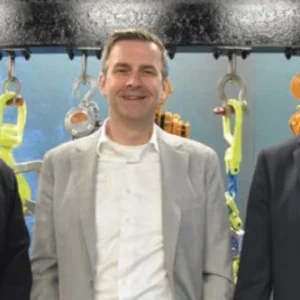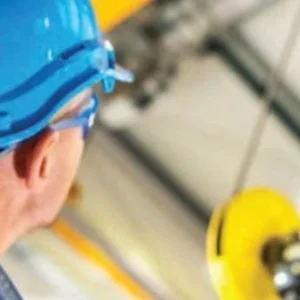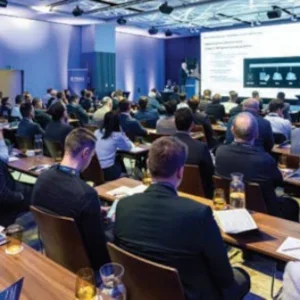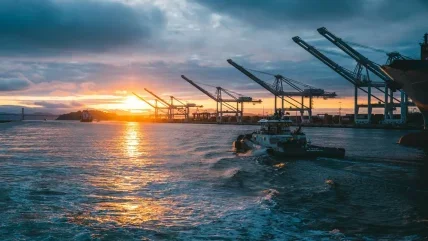
Proserv Crane & Equipment of Houston, Texas, USA, has bought out Dallas-based Anchor Crane & Hoist and thus created what it claims is the largest independent overhead crane manufacturing company in southwest USA and one of the largest in the whole country. The combined business, Proserv Anchor Crane Group, is expecting sales revenue of $20-25m for 2004.
“I can’t tell you anybody bigger than me that’s independent,” says the founder and majority owner, Neal Wilson.
It is the company’s second acquisition in six months. In December Proserv bought the rights to another rival, Osbourne, which had gone out of business.
Two years ago, five crane builders competed for business in the largest single state for hoist and crane products. Now, there are two: Proserv Anchor, and, predictably, Konecranes Americas. (That Houston-based operation drew strength from three earlier acquisitions: 2003’s acquisitions of the defunct Cranemann, Kranko (in 1993), and Landel (in 1987).
What is remarkable is that Wilson, 45, started Proserv only 16 years ago, in 1988. A native of Houston, he started work at Kranko in 1969 after training as a structural engineer in night school. In 1974 an opportunity arose in estimating and inside sales at arch-rival Landel. By the time KCI Konecranes took the company over in 1987, he was VP of sales. A year later, he left to start up Proserv.
“I’m not a person that likes to work for huge companies. In my early career I worked at Brown & Root for a year, and I was just a number. I didn’t want to be a number again.”
The initial idea was to offer sales and rebuilds, but within a month or two, he was contacted by his old customers for new cranes.
He set up the company with an old friend from the Landell/Kone service business, John Mann, who later left to start Cranemann.
Proserv manufactures about 300 cranes a year, mainly for the oil and gas industry with capacities from 5 to 25 US tons. “We go in from the ground up. We buy the steel, buy a motor, do the necessary machine work. We’re a manufacturer, not just an assembler.” The steel in question comes from Triple-S Steel. Gary Stein, its CEO, is chairman and minority owner of Proserv. “Having a partner of a steel warehouse allows me to control steel much closer than most,” says Wilson.
Although it has manufactured about 20 hoists for special applications – offshore, explosive environments, long lifts or large capacities – mainly it buys hoists. From everyone. It is a member of Columbus McKinnon’s Cranemart, R&M Material Handling (KCI Konecranes)’s distribution network, and buys from Germany’s R. Stahl, and others. “In the East and the North, there are manufacturers that only buy from one supplier. We buy Street sometimes, we buy Harrington sometimes. We’re different, buy we’re like everyone else in the area.”
2002 was the company’s best-ever year, he says, and 2003 was not as good, “but still good.” The company’s exposure to the oil and gas industry has certainly helped. “The high price of gasoline has surely increased the desire for drilling companies to increase their output, which increases the requirements for the type of crane we build,” Wilson says.
It was these jobs that had deposited some cash in the bank, to partially fund the last six months’ spending spree. Wilson says that the company did take on some debt to finance the acquisition of Anchor. Proserv bought Anchor from RPC Oil & Gas Services, a public corporation headquartered in Atlanta, Georgia. The crane business was non core for RPC.
Anchor was established in the mid-1960s. But its production did not live up to its heritage. “Anchor had two times the square footage that we had, and had more employees than we did, but did about two-thirds the business that we did,” Wilson said.
Anchor specialised in the mobile homes construction business. “It’s a big industry in the US. They use monorails and switches.” The company has also made 250 to 300 jib cranes, with capacities up to 10 US (9t). ‘We’ll definitely increase production on that line,” he says. Osbourne, the other acquisition, had a niche supplying cranes to those building natural gas pumping stations.
As part of the consolidation, the new company has eliminated 29 Anchor jobs, about a third of the old company. It now has just 100 staff, split between a third office jobs and two-thirds in the shop and service elements. A total of 24 staff work in service, installation and training, split evenly between the Houston Proserv factory, and 12 at the 114,00 sq ft old Anchor plant in Irving, Texas. Additional parts and service are available from a facility in San Antonio.
And he says he’s not worried about Konecranes Americas, either. “Small independent companies are able to run leaner. We can manufacture a small single-girder crane, from the time the steel hits the door to when it leaves, in probably two days. People always seem to wait until the last minute to buy small cranes. We have a large inventory of hoists and end trucks, so we can manufacture these cranes in 1-2 weeks, compared to others’ 4-6 weeks. Having a large inventory enables us to jump when the customer wants something.”


